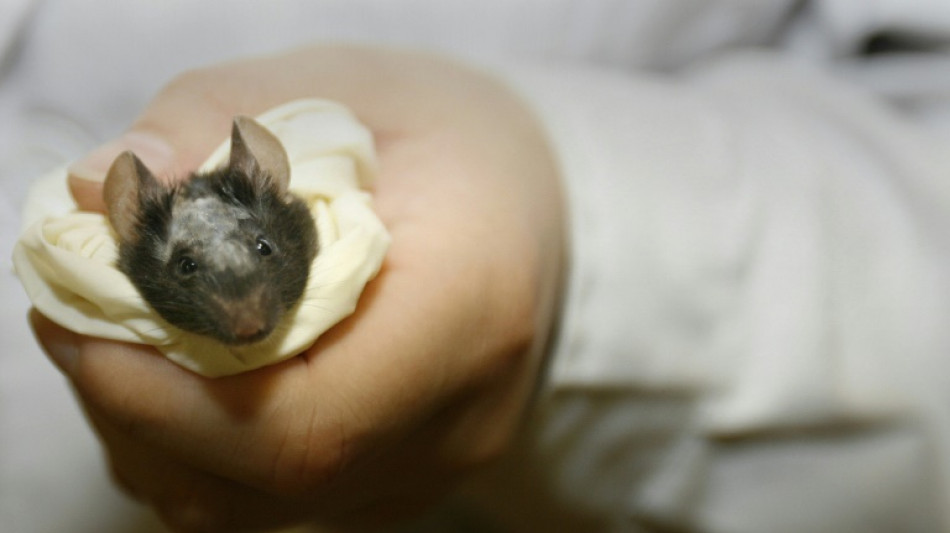
-
 Touadera on path to third presidential term as Central African Republic votes
Touadera on path to third presidential term as Central African Republic votes
-
'Acoustic hazard': Noise complaints spark Vietnam pickleball wars

-
 Iraqis cover soil with clay to curb sandstorms
Iraqis cover soil with clay to curb sandstorms
-
Australia's Head backs struggling opening partner Weatherald

-
 'Make emitters responsible': Thailand's clean air activists
'Make emitters responsible': Thailand's clean air activists
-
Zelensky looks to close out Ukraine peace deal at Trump meet

-
 MCG curator in 'state of shock' after Ashes Test carnage
MCG curator in 'state of shock' after Ashes Test carnage
-
Texans edge Chargers to reach NFL playoffs

-
 Osimhen and Mane score as Nigeria win to qualify, Senegal draw
Osimhen and Mane score as Nigeria win to qualify, Senegal draw
-
Osimhen stars as Nigeria survive Tunisia rally to reach second round

-
 How Myanmar's junta-run vote works, and why it might not
How Myanmar's junta-run vote works, and why it might not
-
Watkins wants to sicken Arsenal-supporting family

-
 Arsenal hold off surging Man City, Villa as Wirtz ends drought
Arsenal hold off surging Man City, Villa as Wirtz ends drought
-
Late penalty miss denies Uganda AFCON win against Tanzania

-
 Watkins stretches Villa's winning streak at Chelsea
Watkins stretches Villa's winning streak at Chelsea
-
Zelensky stops in Canada en route to US as Russia pummels Ukraine

-
 Arteta salutes injury-hit Arsenal's survival spirit
Arteta salutes injury-hit Arsenal's survival spirit
-
Wirtz scores first Liverpool goal as Anfield remembers Jota

-
 Mane rescues AFCON draw for Senegal against DR Congo
Mane rescues AFCON draw for Senegal against DR Congo
-
Arsenal hold off surging Man City, Wirtz breaks Liverpool duck

-
 Arsenal ignore injury woes to retain top spot with win over Brighton
Arsenal ignore injury woes to retain top spot with win over Brighton
-
Sealed with a kiss: Guardiola revels in Cherki starring role

-
 UK launches paid military gap-year scheme amid recruitment struggles
UK launches paid military gap-year scheme amid recruitment struggles
-
Jota's children join tributes as Liverpool, Wolves pay respects

-
 'Tired' Inoue beats Picasso by unanimous decision to end gruelling year
'Tired' Inoue beats Picasso by unanimous decision to end gruelling year
-
Thailand and Cambodia declare truce after weeks of clashes

-
 Netanyahu to meet Trump in US on Monday
Netanyahu to meet Trump in US on Monday
-
US strikes targeted IS militants, Lakurawa jihadists, Nigeria says

-
 Cherki stars in Man City win at Forest
Cherki stars in Man City win at Forest
-
Schwarz records maiden super-G success, Odermatt fourth

-
 Russia pummels Kyiv ahead of Zelensky's US visit
Russia pummels Kyiv ahead of Zelensky's US visit
-
Smith laments lack of runs after first Ashes home Test loss for 15 years

-
 Russian barrage on Kyiv kills one, leaves hundreds of thousands without power
Russian barrage on Kyiv kills one, leaves hundreds of thousands without power
-
Stokes, Smith agree two-day Tests not a good look after MCG carnage

-
 Stokes hails under-fire England's courage in 'really special' Test win
Stokes hails under-fire England's courage in 'really special' Test win
-
What they said as England win 4th Ashes Test - reaction

-
 Hong Kongers bid farewell to 'king of umbrellas'
Hong Kongers bid farewell to 'king of umbrellas'
-
England snap 15-year losing streak to win chaotic 4th Ashes Test

-
 Thailand and Cambodia agree to 'immediate' ceasefire
Thailand and Cambodia agree to 'immediate' ceasefire
-
Closing 10-0 run lifts Bulls over 76ers while Pistons fall

-
 England 77-2 at tea, need 98 more to win chaotic 4th Ashes Test
England 77-2 at tea, need 98 more to win chaotic 4th Ashes Test
-
Somalia, African nations denounce Israeli recognition of Somaliland

-
 England need 175 to win chaotic 4th Ashes Test
England need 175 to win chaotic 4th Ashes Test
-
Cricket Australia boss says short Tests 'bad for business' after MCG carnage

-
 Russia lashes out at Zelensky ahead of new Trump talks on Ukraine plan
Russia lashes out at Zelensky ahead of new Trump talks on Ukraine plan
-
Six Australia wickets fall as England fight back in 4th Ashes Test

-
 New to The Street Show #710 Airs Tonight at 6:30 PM EST on Bloomberg Television
New to The Street Show #710 Airs Tonight at 6:30 PM EST on Bloomberg Television
-
Dental Implant Financing and Insurance Options in Georgetown, TX

-
 Man Utd made to 'suffer' for Newcastle win, says Amorim
Man Utd made to 'suffer' for Newcastle win, says Amorim
-
Morocco made to wait for Cup of Nations knockout place after Egypt advance


Mice trial raises hopes for 'on demand' male contraceptive
If women have the "morning after" pill, could men one day have an "hour before" pill?
A new drug candidate renders male mice infertile within an hour and wears off in less than a day, an experimental study said Tuesday, potentially pointing towards a future "on-demand" male contraceptive.
The potential drug, which has not been tested in humans and remains years away from possibly becoming available, joins a growing number of male contraceptives in development.
However there are currently only two options available for men: condoms and vasectomies.
Previous drugs have struggled partly because the bar for side effects is believed to be far higher for men -- because they do not risk getting pregnant -- as well as a lack of interest from the pharmaceutical industry.
"For women, right now all the burden of contraception is on us," Melanie Balbach, a pharmacology researcher at Weill Cornell Medicine in the US, told AFP.
"We want new options," said Balbach, the lead author of the study published in Nature Communications.
The team of researchers targeted an enzyme called soluble adenylyl cyclase, which acts as the "on switch" for sperm, said study co-author Jochen Buck, also of Weill Cornell Medicine.
If the enzyme is switched off, the sperm can no longer move, he said.
Across several different tests, the researchers showed that a compound which blocks the enzyme renders mice sperm immobile in 30 minutes to an hour.
The compound was 100 percent effective in preventing pregnancy within the first two hours, dropping to 91 percent in the first three hours, the study said.
After 24 hours, the mice sperm moved like normal again.
- 'Eye-catching advantage' -
The researchers hope are aiming for a single non-hormonal pill that works in under an hour and lasts six to 12 hours, Buck said.
This would be much different to other options under development, such as a hormonal gel currently going through human trials, which all take weeks or months to start and stop working.
No side effects were noticed in the mice. Previous research has suggested that infertile men who had their soluble adenylyl cyclase enzyme permanently switched off had an increased rate of kidney stones.
Buck said this was the result of their enzyme always being off -- which would not be the case for men taking an on demand pill.
The researchers hope to hold the first trials on humans within three years, with a final product possibly up to eight years away, Buck said.
Susan Walker, an expert in contraception at the UK's Anglia Ruskin University not involved in the research, said she was a "little sceptical" a pill would actually make it to market as so many other efforts have fallen short.
But the "eye-catching advantage" of almost immediate effectiveness offered "the possibility of seeing a sexual partner take a pill," she said.
The consultancy Desire Line is working on forecasting the potential uptake of a range of male contraceptive products, according to its founder Steve Kretschmer.
"Initial estimates indicate in the United States that uptake for an on-demand pill which has quick onset of action and 1-2 days duration of action could be about triple that of Viagra when it was initially launched," he told AFP.
Y.Kobayashi--AMWN



